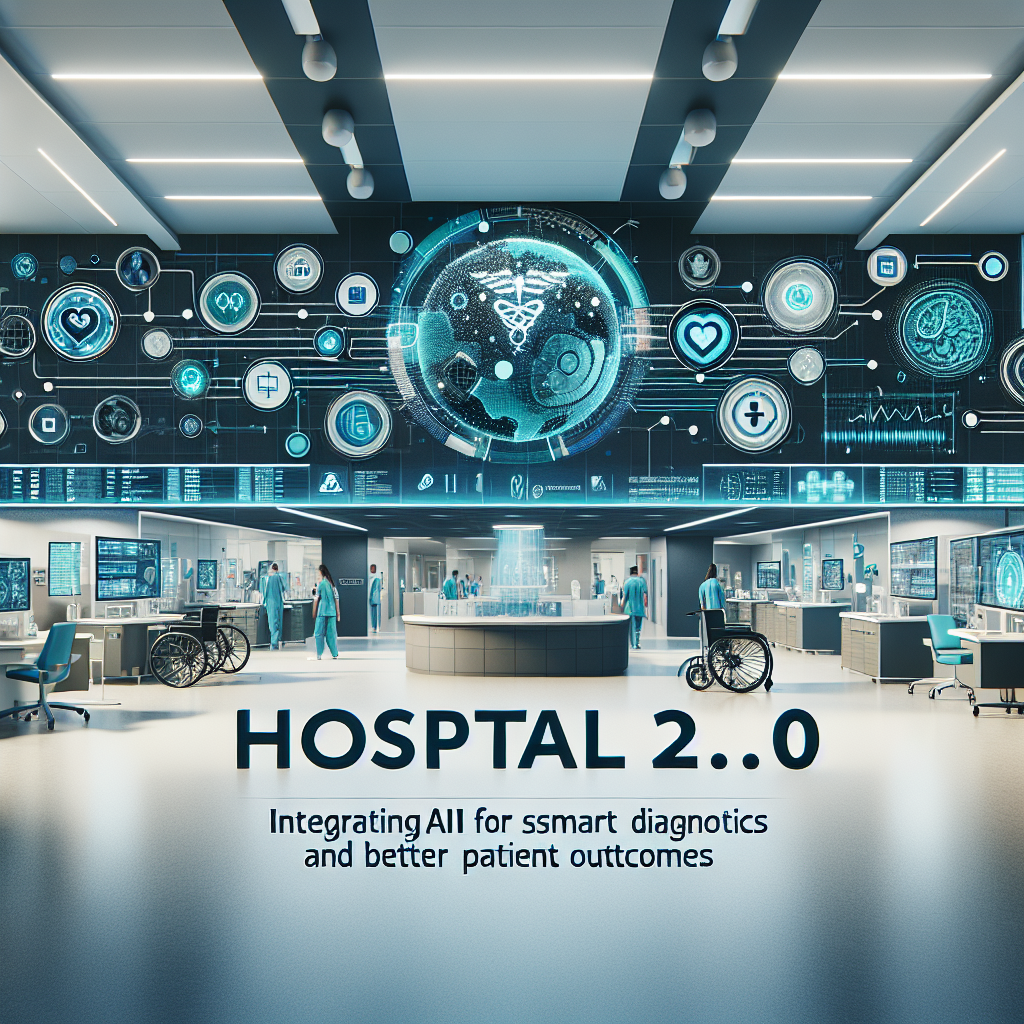The healthcare industry is undergoing a remarkable transformation, thanks to rapid advancements in technology. One of the most exciting areas of this transformation is the integration of artificial intelligence (AI) into hospital settings. This article explores the concept of “Hospital 2.0,” examining how AI is being utilized for smarter diagnostics and improved patient outcomes.
Table of Contents
- Introduction to Hospital 2.0
- The Role of AI in Healthcare
- Smarter Diagnostics through AI
- Improving Patient Outcomes with AI
- Ethical Considerations in AI Integration
- Challenges in Implementing AI in Hospitals
- Case Studies and Success Stories
- Conclusion: The Future of Hospital 2.0
Introduction to Hospital 2.0
As healthcare systems grapple with increasing patient loads and rising costs, the integration of digital technologies has emerged as a necessity. Hospital 2.0 marks a new era where AI technologies and data analytics are leveraged to enhance operational efficiency and improve patient care. This shift is not just about implementing new tools; it signifies a fundamental change in how healthcare is delivered and managed.
The Role of AI in Healthcare
Artificial intelligence is paving the way for significant advancements in healthcare. By utilizing vast amounts of data and sophisticated algorithms, AI can assist healthcare professionals in making informed decisions. It encompasses various subfields, including machine learning, natural language processing, and robotics, each contributing to improved healthcare delivery.
External Resource
For further insights on AI in healthcare, refer to McKinsey & Company.
Smarter Diagnostics through AI
Diagnostics are the cornerstone of effective healthcare. AI technologies are enhancing diagnostic accuracy and speed, which can lead to faster treatment decisions.
Machine Learning and Predictive Analytics
Machine learning algorithms can analyze historical patient data to predict outcomes, identify trends, and enhance clinical decision-making. For instance, predictive analytics can forecast the likelihood of disease outbreaks, enabling hospitals to allocate resources mais effectively.
Image Recognition Technologies
AI-powered image recognition technologies are revolutionizing diagnostic imaging. Tools such as deep learning algorithms can analyze medical images like X-rays or MRIs to detect anomalies that may escape human eyes. Early detection of conditions such as cancer can significantly improve patient survival rates and outcomes.
Improving Patient Outcomes with AI
The integration of AI not only refines diagnostic processes but also facilitates better patient outcomes through personalized care.
Streamlined Patient Care
AI tools can automate administrative tasks such as scheduling, billing, and patient follow-ups, allowing healthcare professionals to focus on direct patient care. This not only increases efficiency but also enhances the patient experience.
Personalized Medicine
AI enables a more tailored approach to treatment. By analyzing genetic, lifestyle, and environmental factors, healthcare providers can develop customized treatment plans. This shift towards personalized medicine promotes better patient engagement and satisfaction.
Ethical Considerations in AI Integration
While the potential benefits of integrating AI into healthcare are significant, ethical considerations cannot be overlooked. Data privacy, informed consent, and algorithmic bias are critical aspects that healthcare organizations must address.
External Resource
For an in-depth discussion on ethical concerns in AI, see The World Health Organization (WHO).
Challenges in Implementing AI in Hospitals
Despite its potential, the integration of AI in hospital settings faces several challenges. These include:
- Data Security Concerns: The sensitive nature of health data necessitates robust security measures.
- Resistance to Change: Staff may be hesitant to adopt new technologies, requiring effective change management strategies.
- Cost of Implementation: Developing and maintaining AI systems can be expensive, demanding significant initial investment.
Case Studies and Success Stories
Numerous hospitals and healthcare providers worldwide are successfully leveraging AI to enhance diagnostics and patient outcomes. For instance, the University of California, San Francisco (UCSF) has implemented machine learning to predict patient deterioration, resulting in timely interventions.
Similarly, Mount Sinai Health System in New York has developed an AI platform that provides clinicians with real-time alerts about potential health issues, helping them make informed decisions quickly.
Internal Resource
To learn more about sustainable practices in healthcare, check out our article on Innovations in Healthcare.
Conclusion: The Future of Hospital 2.0
The future of healthcare lies in the seamless integration of AI technologies to create smarter hospitals. By enhancing diagnostics and improving patient outcomes, AI has the potential to transform healthcare delivery fundamentally. As healthcare systems navigate this transition, addressing ethical considerations and overcoming implementation challenges will be key to unlocking the full benefits of AI.
In summation, as we advance towards Hospital 2.0, the focus will not only be on technology but also on fostering a more holistic approach to patient care—one that combines innovation with compassion.
This article has outlined the various facets of Hospital 2.0, emphasizing the role of AI in smarter diagnostics and enhanced patient outcomes. For further insights, consider exploring our other articles on Healthcare Trends.
